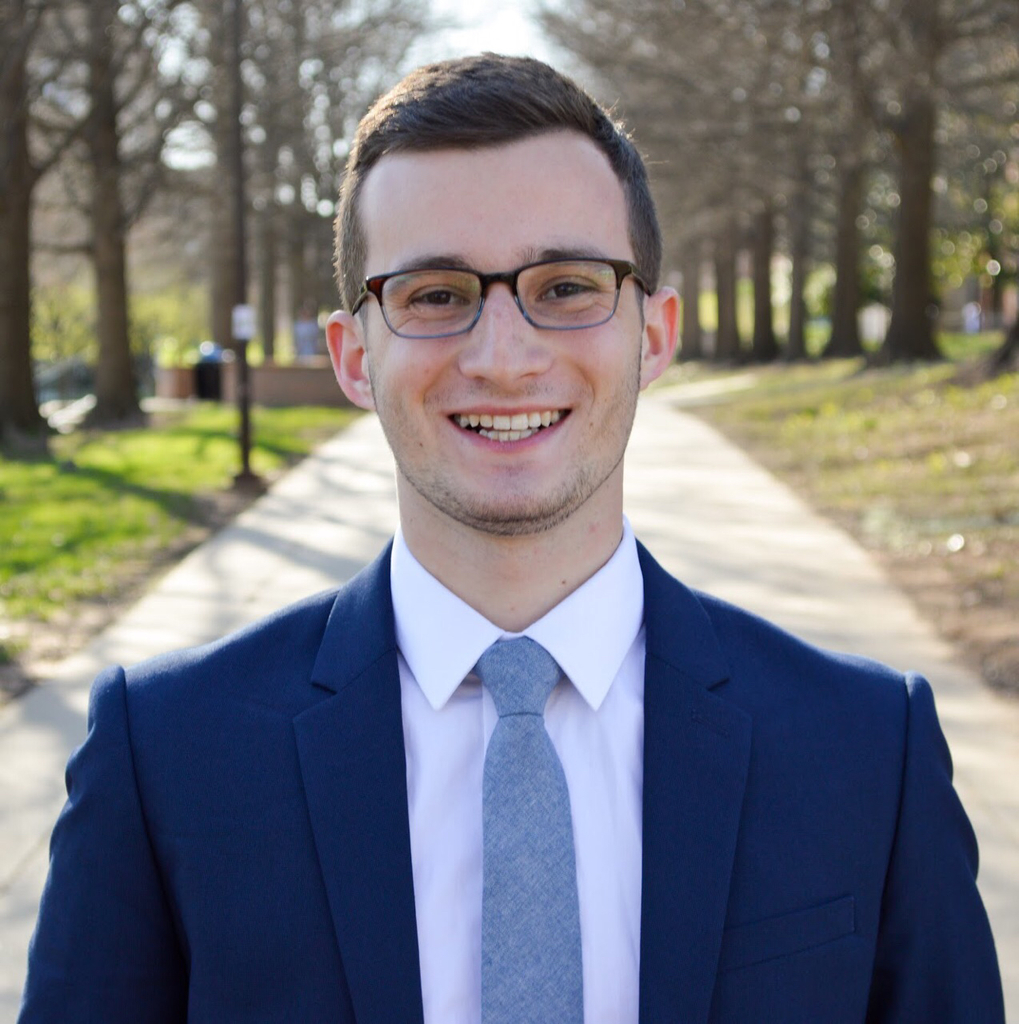Envision Maryland candidate Jonathan Allen was elected the University of Maryland’s SGA president, carrying 74 percent of the student vote, according to SGA election results released Friday.
Allen defeated Recognize UMD’s presidential candidate, Humza Yahya, a junior accounting and information systems major, who serves as one of the Student Government Association’s off-campus neighboring representatives. Envision Maryland swept all contested seats in the SGA election, beating out Recognize UMD’s candidates for president, vice president of financial affairs and vice president of student affairs.
“To finally accomplish [being elected] was definitely a relief, but exciting, knowing that going forward I’m able to represent the student body,” Allen said. “In the meantime, I’m going to meet with my newly elected executive board and cabinet and really look back at all of the platform ideas that we set out and that we campaigned on, and see how we can plan for the year.”
Recognize UMD, a party comprised of Yahya, Kamyar Dastani and Keith Katz, served as Envision Maryland’s opposition. Their platform revolved around financial reform, with goals of allowing cultural groups to apply for funding for social events. Last year, SGA elections were largely uncontested after the Unity Party dropped out of the race. Dastani ran for vice president of student affairs; Katz, who ran for vice president of financial affairs, attempted to withdraw from the race due to personal reasons on April 10, but the SGA’s election board ruled he must stay on the ballot.
[Read more: SGA candidate who dropped out must stay on ballot, elections board says]
Allen, a junior government and politics major, framed his ticket’s platform on resource affordability, addressing issues such as high textbook prices, limited low-cost transportation options to grocery stores and rising student fees attached to tuition. Running mates Ro Nambiar, Rahila Olanrewaju and Andrew Stover will become next year’s vice president of student affairs, vice president of academic affairs and vice president of financial affairs, respectively.
Nambiar garnered 76 percent of the vote and Stover garnered 75 percent of the vote. Olanrewaju, who ran uncontested, collected 82 percent of the vote.
Following a recent trend, more students voted this year than in the previous two election cycles — 2,309 students voted, about 8 percent of this university’s undergraduate student body, as compared to 2,235 students last year, and 1,576 in 2016.
[Read more: Jonathan Allen’s SGA presidential campaign will focus on affordability for students]
Allen was the SGA’s speaker of the legislature for the 2017-2018 school year, and he has said his experience has prepared him to take on the presidential role.
“The speaker is the only person that … sits on the legislative leadership, sits on the president’s cabinet, sits on executive board meetings,” Allen has said. “So it really gave me an opportunity to see all aspects of the organizations.”
Allen joined the SGA in the spring semester of his freshman year, serving on the student affairs committee. He has also been an undergraduate studies representative, a Leonardtown representative and the speaker of the legislature. The speaker conducts the SGA’s weekly meetings, introducing bills, recognizing representatives, parceling out debate time and counting votes.
Nambiar, a junior public health science major, said she’s ready to focus on mental health issues and campus safety in her new position.
“Our campus is in a mental health crisis,” Nambiar said. “It’s something that I have been working on all year, specifically this semester though, but I have a lot, a lot more ideas that I’m glad I have this position so I can really enact my ideas.”
Yahya, a junior accounting and information systems major, said he wanted the people who voted for him to give their full support to the new executive board.
“Everyone who won are all wonderful people,” Yahya said. They’re people who really have the best of the university and the student body at heart.”
He said he was glad for the opportunity to participate in the elections, and would welcome the chance to be a part of the SGA again next year.
“I went into this really just wanting to provide the student body a little bit of choice, a little competition, and at the end of the day, I really just wanted to have fun,” Yahya said. “This is the last time I’d even be able to run, I might as well run for something that I care about, and really I just wanted to get my ideas out there, and I think I succeeded in that.”
MaryPIRG, a non-partisan group aimed to mobilize students for political action, also fared well in the SGA elections, with about 80 percent of student participants voting in favor of allowing the organization to apply for funding for non-student staff salaries. With two positions in question, 79 percent of students voted the group should be allowed to apply to the SGA’s finance committee for a salary for its campus organizer, and 78 percent of students voted MaryPIRG should be allowed to apply for a state director salary.



